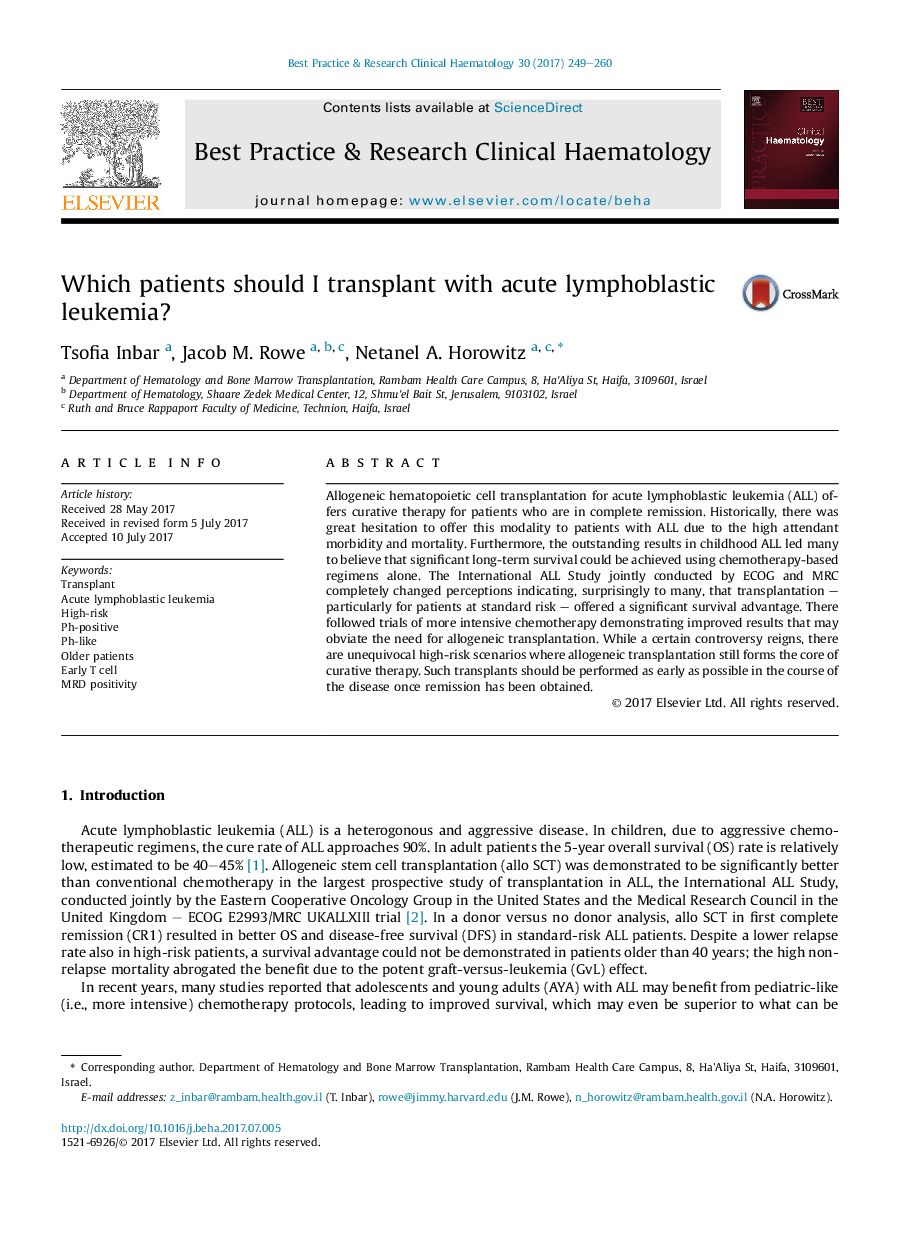| Article ID | Journal | Published Year | Pages | File Type |
|---|---|---|---|---|
| 5523870 | Best Practice & Research Clinical Haematology | 2017 | 12 Pages |
Allogeneic hematopoietic cell transplantation for acute lymphoblastic leukemia (ALL) offers curative therapy for patients who are in complete remission. Historically, there was great hesitation to offer this modality to patients with ALL due to the high attendant morbidity and mortality. Furthermore, the outstanding results in childhood ALL led many to believe that significant long-term survival could be achieved using chemotherapy-based regimens alone. The International ALL Study jointly conducted by ECOG and MRC completely changed perceptions indicating, surprisingly to many, that transplantation - particularly for patients at standard risk - offered a significant survival advantage. There followed trials of more intensive chemotherapy demonstrating improved results that may obviate the need for allogeneic transplantation. While a certain controversy reigns, there are unequivocal high-risk scenarios where allogeneic transplantation still forms the core of curative therapy. Such transplants should be performed as early as possible in the course of the disease once remission has been obtained.
